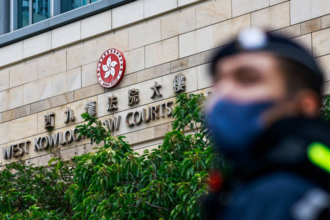Pritam Singh, Singapore’s opposition leader, has been found guilty of lying under oath to a parliamentary committee. The charges came from his treatment of former Workers’ Party lawmaker Raeesah Khan. Khan had earlier misled parliament in another instance; Singh’s involvement in the matter resulted in the present accusations.
The outcome of this well-publicized trial comes as Singapore gets ready for its next general election, which falls by November. Given Singh’s Workers’ Party’s present nine out of 87 elected seats in parliament, this case is even more relevant in the political scene. The conviction of Pritam Singh raises major issues about the future of both the leader and his party.
What legal consequence follows from Singh's conviction?
Any Member of Parliament (MP) fined more than S$10,000 (about $7,440; £5,925) or imprisoned for more than a year could lose their seat or be barred from running for office for five years in Singapore. The prosecution has sought the maximum amount of S$7,000 (approximately $5,200; £4,200) for each of the two offenses against Singh, while the defense has proposed a fine of S$4,000 (around $3,000; £2,400).
The verdict, delivered after a session lasting more than two hours, was heard in a full courtroom. Due to limited space, many journalists and onlookers, including those from international publications, observed the proceedings via a livestream from a separate room. The conviction of Pritam Singh has rocked Singapore’s political scene particularly as the nation gets ready for the next election.
What Did the Court Say About Singh's Actions?
Delivering the decision, District Judge Luke Tan emphasized a number of documents proving Pritam Singh “never wanted Ms. Khan to clarify [her] lie.” He also emphasized that Singh had “direct and intimate involvement” in guiding Khan to continue with her false narrative.
Judge Tan further said that Singh’s behavior following learning of Khan’s lie was “strongly indicative” of his lack of desire for her to correct the falsehood. This result attracted national attention since it highlighted Singh’s involvement in the scandal.
Singh defended himself as follows?
Pritam Singh insisted on his innocence throughout the trial, contending that he wanted to give Khan time to handle a delicate matter before addressing it. Saying he gave Khan “too much time to settle herself before closing this issue with her,” he refuted his encouragement of her to keep lying.
Singh’s defense relied on the premise that his actions were motivated by a desire to encourage Khan during a difficult time rather than an effort to deceive.
What Happened to Raeesah Khan in the Scandal?
The scandal started in August 2021 when Khan claimed in parliament that she had seen police mistreating a victim of a sexual assault. She later admitted that the story was fabricated. Khan was fined S$35,000 ($26,000; £21,000) for misusing her parliamentary privilege and lying under oath. She subsequently resigned from both the Workers’ Party and parliament.
During a parliamentary committee investigation into the incident later that year, Khan testified that party leaders, including Singh, had encouraged her to continue with her false narrative despite knowing the truth. This statement led to the investigation that finally resulted in Pritam Singh being found guilty.
What Does This Mean for the Workers' Party?
Currently the opposition party most often found in Singapore’s parliament is Pritam Singh’s Workers’ Party. The party achieved huge gains in the 2020 election, expanding its seats from six to 10, marking the greatest victory for the opposition since Singapore got independence in 1965. After these elections Singh was named the opposition leader.
However, one of the party’s seats has since been vacated by Raeesah Khan. The trial has raised concerns about the party’s future, especially with the upcoming general election. Political observers think that the Workers’ Party may face issues as the party’s credibility could be questioned owing to this controversy.
What Will Be the Political Consequences for Singh?
Given Singapore’s approaching next general election, Pritam Singh’s conviction could have far-reaching political ramifications. The opposition leader’s reputation could be severely affected, particularly if the court imposes the maximum fine or a jail sentence. The case could also affect voter mood, particularly considering the rare political disputes in Singapore’s usually stable and orderly political environment.
The outcome of the case is likely to shape the public perception of both Singh and the Workers’ Party in the coming months, potentially altering the party’s chances in the highly anticipated election.








